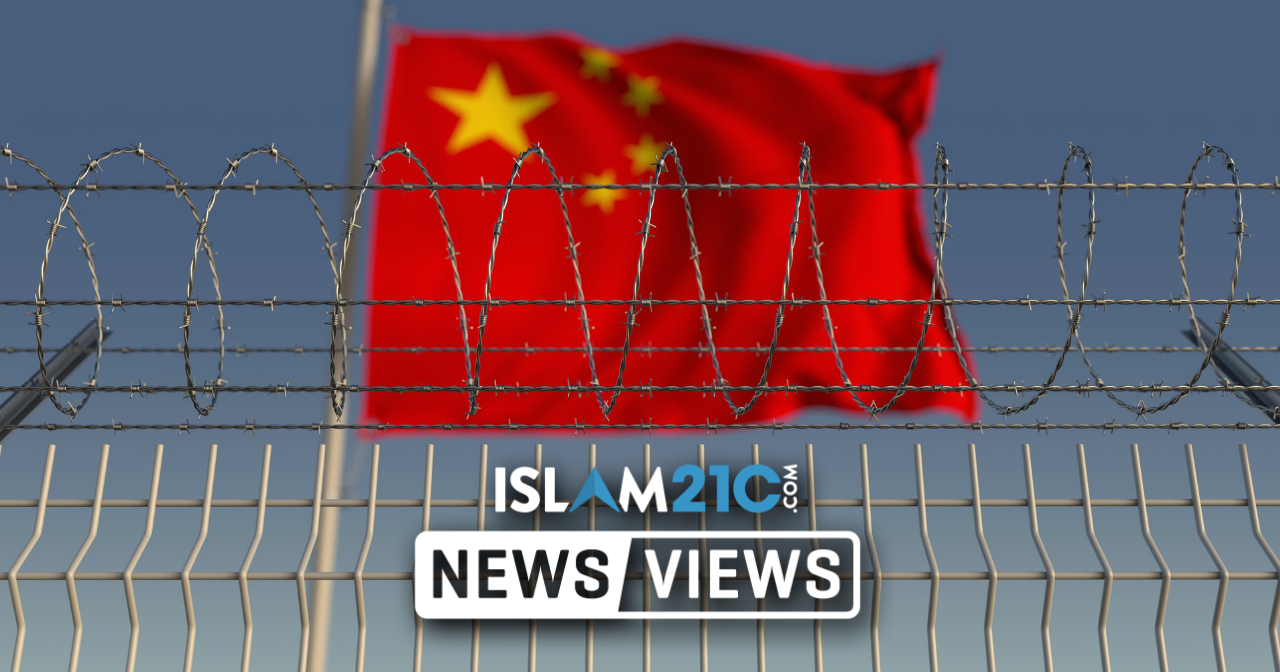Leaked documents from China’s Communist Party expose the brainwashing taking place inside high-security internment camps for Muslims in the country’s tightly controlled Xinjiang region.
The so-called China Cables were obtained by the International Consortium of Investigative Journalists (ICIJ), a US-based donor-funded reporting outlet, and shared with 17 media partners for publication on Sunday.
The documents lift the lid on conditions for about a million members of the Muslim Uyghur community in the far western region who are thought to be detained without trial and forced to undergo indoctrination.
China’s government has repeatedly said the camps offer voluntary education and training to help stamp out so-called “Islamic extremism”. Beijing’s envoy to the UK told the BBC, one of the ICIJ’s media partners, that the documents were fake news.
The files “include a classified list of guidelines” approved by top Chinese officials for running camps and a “massive data collection and analysis system that uses artificial intelligence” to help round up suspect Xinjiang residents, said ICIJ reporter Bethany Allen-Ebrahimian.
“The system is able to amass vast amounts of intimate personal data through warrantless manual searches, facial recognition cameras, and other means to identify candidates for detention, flagging for investigation hundreds of thousands merely for using certain popular mobile phone apps,” wrote Allen-Ebrahimian.
“The documents detail explicit directives to arrest Uyghurs with foreign citizenship and to track Xinjiang Uyghurs living abroad, some of whom have been deported back to China by authoritarian governments.”
Earlier this month, another trove of Chinese government documents leaked to the New York Times daily revealed details about Beijing’s fears over religious extremism and its wholesale crackdown on Uyghurs.
This latest revelation is not new and forms part of a wide scale systemic repression and persecution of Uyghur Muslims. Several human rights organisations and experts have raised concerns surrounding the Chinese government’s actions against the minority community.
According to UN experts and activists, China is holding over one million people, particularly Uyghur Muslims, in detention centres. However, China describes these camps as “re-education camps” aiming to “stamp out ‘extremism’ and give [Uyghur Muslims] new skills.”
The Uyghur Muslims that are not detained and thrown into concentration camps and are instead faced with scrutiny from the security forces. This includes but is not limited to armed checkpoints, ID cards and facial recognition cameras.
China is said to have also deployed over a million spies to closely monitor the activity of Uyghur Muslims. According to a Communist party officer, the spies visit Uyghur households and during their visits they work, eat, and frequently share a bed with their “hosts”.
Speaking on condition of anonymity, the officer who oversees between 70 to 80 Uyghur families, Yengisar county said, “They stay with their paired relatives day and night”.
He added that “normally one or two people sleep in one bed, and if the weather is cold, three people sleep together”.
China’s ‘Xinjiang’ region is home to some 10 million Uyghurs. The Turkic Muslim group, which accounts for roughly 45% of ‘Xinjiang’s’ total population, has long accused the Chinese authorities of political, economic, and cultural discrimination.
Over the last two years, China has subjected the region to increasingly draconian restrictions, including banning men from growing beards and women from wearing veils. The country has also introduced, what many observers see as, the world’s most extensive electronic surveillance program, according to reports in The Wall Street Journal.
Meanwhile, as least one million people – roughly 7% of Xinjiang’s Muslim population – have been incarcerated in an ever-expanding network of “political re-education” camps, according to both US and UN officials.
May Allāh (subḥānahu wa taʿālā) free all of our brothers and sisters from oppression, forgive our shortcomings and give us the tawfīq to get to work. Āmīn.
Read Also:
China’s Concentration Camps: What Can We Do?
[donationbanner]
Source: www.islam21c.com
Notes:
[1] AA
[4] https://www.islam21c.com/news-views/prominent-uyghur-writer-dies-at-chinese-internment-camp/







